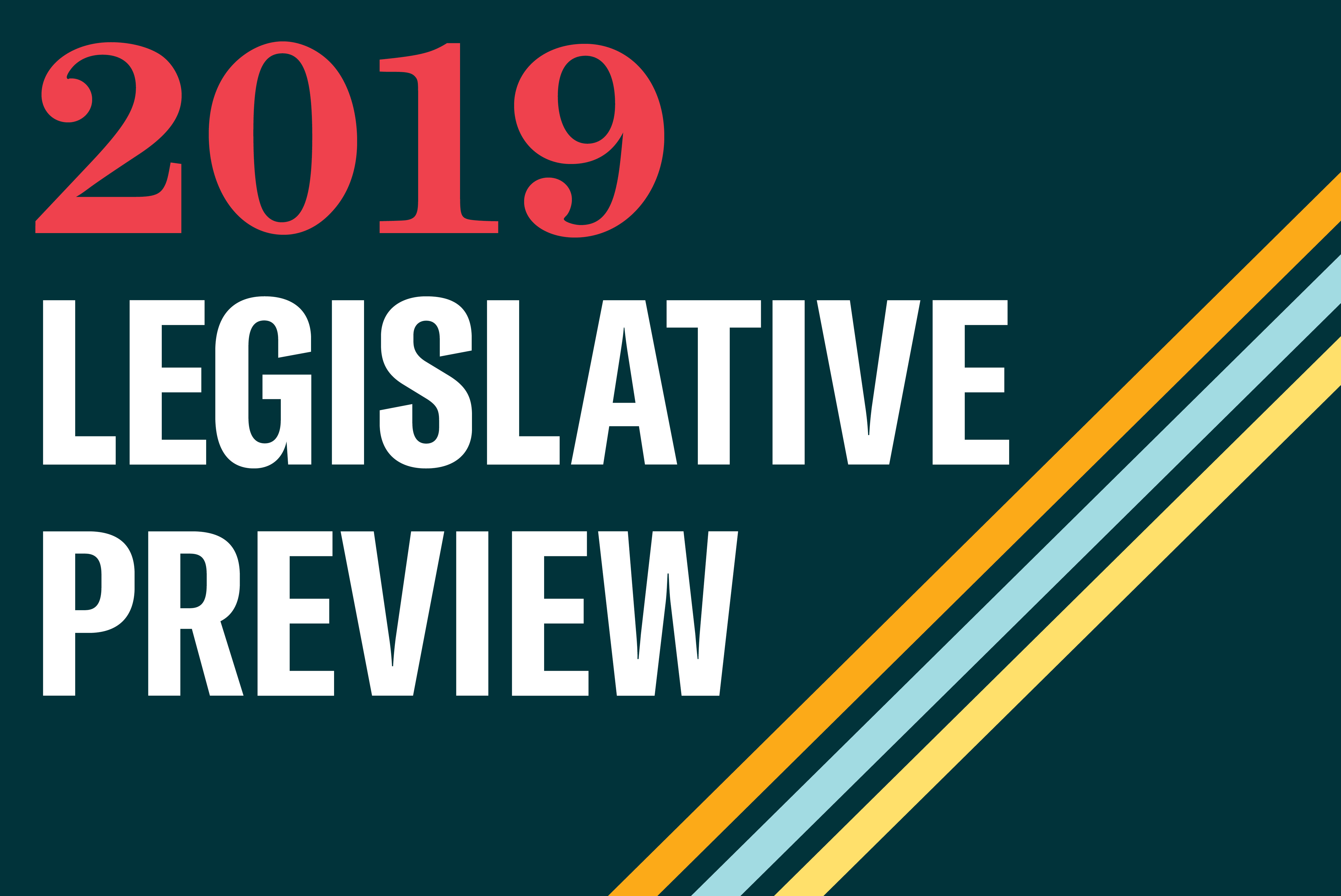It’s that time again! Over 2,000 bill titles have been announced by the Maine Legislature, and now we’re reading every single one to identify which ones will have implications – good or bad – for your rights and liberties.
Most bills are still in development, meaning the titles are out but the bills haven’t been fully written. Most of the bill numbers listed are "LR" (Legislative Request) numbers - these are assigned by the Revisor of Statutes when a legislator submits a bill title. These bills will be assigned different "LD" (Legislative Document) numbers once they are printed and ready for a hearing.
Here’s an overview of some of the bills we’re watching so far – these are some of the bills we’ll be prioritizing and asking for your help on. We’ll be updating this list as the session gets underway.
Stay tuned to our action center throughout the session for more information and ways to make your voice heard.
The Good - bills to protect and expand our civil rights and freedom
Bail Reform
LR 407: An Act To Amend the Bail Code (Rep. Rachel Talbot Ross, Portland)
LR 1943 An Act To Improve Efficiency in Maine Courts (Rep. Matt Moonen)
Cash bail was originally meant to be a way to allow people to go free awaiting trial, and ensure they returned to court as their case progressed. Today, it has turned into a system that holds people in jail awaiting trial because they cannot afford to buy their freedom.
As a result, Maine is facing a pretrial incarceration crisis. On any given day, the majority of people in Maine jails are pretrial defendants – based on our limited information, we estimate as many as 40,000 people a year spend as little as a day and sometimes weeks and months in jail awaiting trial. Most of them have been charged with only misdemeanor offenses. As a result, our jails are overcrowded, families are torn apart, Maine’s economy suffers, and we are not any safer for it.
This system is expensive; it costs Maine taxpayers at least $100 a day – and usually more – to jail someone. It undermines the judicial system; people held pretrial are more likely to plead guilty, even to a crime they didn’t commit, in order to get out of jail faster. Further, incarcerating people before they have been tried for or convicted of a crime turns the presumption of innocence on its head. And it ruins lives; people who spend just one or two days in jail risk losing their jobs, their homes, even custody of their children.
Look for LR 407 to increase our reliance on personal recognizance bail. People who have not been convicted of a crime and pose no flight risk or threat to public safety do not belong in jail. The most meaningful way to reduce pretrial detention and its inequities is thus to significantly reduce the use of cash bail and replace it with personal recognizance, or PR, bail in most cases. A strong presumption of PR bail means that most people arrested for most offenses would be released without any cash bail. Bail commissioners and judges would need to show evidence of a serious risk of willful flight to avoid prosecution or of physical violence to specific people or the community in order overcome the presumption of PR bail. Similarly, they would need to show specific, individualized reasoning to justify any conditions of release.
A good bail reform bill will also require a judge or bail commissioner to consider important factors before imposing cash bail (e.g. the defendant’s ability to pay, whether the defendant is a primary caregiver, whether the defendant has health care needs that would be better met in the community than in jail, whether staying in jail would affect the defendant’s job).
Bail reform should not increase our reliance on existing “Risk Assessment” tools, which have multiple flaws and perpetuate discrimination in the criminal justice system (e.g. they are based on data from our historically discriminatory justice system; they measure group risk, not an individual’s likelihood of appearance/public safety risk; they often rely on socioeconomic factors such as education level or neighborhood).
And look for LR 1943 to introduce an electronic court notification program, to remind defendants of upcoming court dates. More than 20 percent of all pretrial detainees in Maine are in jail because of failure to appear (FTA) and no other crime. Issuing warrants and scheduling hearings for FTA is a substantial drain on court and clerk time. FTA can be devastating for defendants too, who risk losing their jobs, their homes, and even custody of their children as a result of pretrial incarceration. Studies show that most people who miss court do so because of forgetfulness, work obligations, illness, or other logistical obstacles.
Research has consistently proven that the most effective way to reduce the FTA rate is through phone-based court notification programs, which remind defendants of the date, time, and location of their court date. These are similar to the text reminders that many of us currently receive about upcoming doctor or dentist appointment. Pilot messaging programs in other states have been shown to decrease Failure to Appear rates by 25 to 50 percent, while remaining efficient and inexpensive. Utilizing a similar program in Maine would allow us to incarcerate fewer people pre-trial because we are worried they will miss their court date.
Drug Law Reform
LR 1355 An Act to Reform Drug Sentencing Laws (Rep. Charlotte Warren, Hallowell)
Substance use disorder is a public health crisis, and the criminal justice system was not built to fix public health crises. Yet Maine’s jails have become de facto treatment centers. Far too many people are getting arrested and spending far too long in prison because they are caught with drugs.
Like LD 113 in 2015, this bill will downgrade some drug offenses. Maine's laws are overly harsh - possession of 2g of heroin is defined as trafficking, and possession above 200mg is a felony. The bill will eliminate or raise these thresholds. The bill will also likely address some presumptions of trafficking. If prosecutors want to charge someone with trafficking, they should have actual evidence of trafficking. Mere possession should never result in trafficking charges.
It’s time to stop punishing people for their substance use disorders, and shift our resources to solutions like treatment and prevention that actually work. We should focus on programs that divert people from the criminal justice system and into treatment.
Internet Privacy
Various bills in consideration
In 2016, the Federal Communications Commission (FCC) adopted a rule requiring internet providers to ask customers’ permission to use or sell their sensitive data – such as their web browsing history, when someone signs in and out of an account, or even their location information. But Internet service providers (ISPs) like Charter, AT&T and Verizon spent tens of millions of dollars lobbying Congress to halt the rule, and in 2017 our legislators gave in.
Without these protections, Internet providers remain free to collect and share our personal data with advertisers and anyone else who wants to buy it. This personal information is increasingly being used by advertisers to discriminate against certain communities: advertisers and data brokers are increasingly using data to decide what prices to advertise to someone, the content they should steer them to, and even the types of loans to offer them.
A strong ISP privacy bill would reverse some of the damage done by the loss of privacy protections at the federal level, largely by requiring Internet providers who do business in Maine to get our permission before selling our personal information. The U.S. Congress has put corporate profits over consumer privacy. Now it’s up to the states to protect their residents.
Juvenile Justice
LR 1572 An Act To Divert Juveniles from Incarceration (Rep. Victoria Morales, South Portland)
Kids don’t belong in prison. Yet currently, Maine has no minimum age at which a child can be prosecuted for a crime. This bill would create a bright-line rule that no child under the age of 12 can be prosecuted for a crime and no child under 14 can be sent to prison.
The overarching goal of this bill will be to ensure that fewer children are in the juvenile justice system. If and when children do become involved in the system, it will flip the presumption of incarceration and require prosecutors to prove that sending a child to prison is absolutely necessary.
Incarceration posed a significant risk of harm to children. The younger the child is, the deeper the potential for long-lasting trauma from the imposition of incarceration upon that child. In recognizing that children who are under the age of 12 are not appropriate for criminal justice system involvement, Maine would be applying the lessons learned from jurisdictions around the country and decades of research and developments in psychology, adolescent brain development, and social science.
Reproductive Freedom
We’ll also be looking for ways to protect access to abortion care for all Mainers, regardless of where they live or how much money they make. Gov. Janet Mills has publicly pledged to fight back against any federal attacks on reproductive rights, and we look forward to working with her to not only stop attacks but to also expand the ability of Mainers to get the care they need.
The Bad - bills to restrict our civil rights and freedom
Book Banning
LD 94 An Act To Prohibit the Dissemination of Obscene Material by Public Schools (Rep. Amy Arata, New Gloucester)
This band would ban “obscene” books from Maine public schools by removing the exception that allows the use of “obscene” materials for educational purposes in public schools.
Currently, Maine obscenity law includes exceptions for noncommercial distribution and exhibition “for purely educational purposes by any library, art gallery, museum, public school, private school or institution of higher learning, nor to any commercial distribution or exhibition by any art gallery or museum.” This bill would remove the public school exception.
Books are speech, and limiting what books can appear in public high schools sends the message that the government should be able to decide what we can and cannot read. It chills the discussion of arts and literature in our schools, and makes teachers uncertain of what they can and cannot teach. Threatening schools with prosecution is the wrong way to handle material that some parents find challenging.
Anti-Sanctuary City
LR 1700 An Act To Facilitate Compliance with Federal Immigration Law by State and Local Government Entities (Rep. Larry Lockman, Amherst)
This bill is yet another attempt by Rep. Larry Lockman to capitalize on anti-immigrant fervor and make immigrants feel less welcome in Maine. In fact, this is the third time he has brought up this bill. Every time, Mainers have headed to Augusta to speak out loudly and clearly against it.
Like other “anti-sanctuary city” bills around the country, it would force local law enforcement to act like federal immigration agents. It would punish towns and cities that choose not to engage in federal immigration enforcement by withholding state funds. And it would allow private citizens to bring legal action against local government officials, should an undocumented immigrant be convicted of a crime.
Police officers are not trained as immigration agents and can't be expected to interpret very complicated immigration laws. Further, we are all safer when there is trust between communities and law enforcement. This bill will undermine that trust by making immigrant communities fear the police.
Voter ID
LR 1152 An Act To Require Photographic Identification To Vote (Rep. Harrington, Sanford)
This bill would require Mainers to present photo ID at the polls in order to vote. Research shows that more than 21 million Americans do not have government-issued photo identification; a disproportionate number of these Americans are low-income, racial and ethnic minorities, or elderly. Many of these Americans cannot afford to pay for the required documents needed to secure a government-issued photo ID.
The issue of voter ID was comprehensively investigated and rejected by the 2012 Elections Commission, chaired by former Superior Court Judge John Atwood. The commission was formed by then-Secretary of State Charles Summers pursuant to a 2011 voter ID bill that was amended into a study. The Commission researched legal cases, considered white papers, and held hearings across the state of Maine, hearing from hundreds of Mainers. In their final report, members of the Commission weighed the pros and cons of a voter ID law in Maine and recommended against voter ID, finding that “the negative aspects of a Voter ID law outweigh its potential benefits.”
If we really want to protect the integrity of elections in Maine, we should look for ways to help more qualified people vote - not make it harder for them to cast a ballot. Maine has always been a leader in ensuring access to the ballot and we should fight to keep it that way. Maine should not follow the lead of states that are making it harder for their citizens to participate in democracy.



